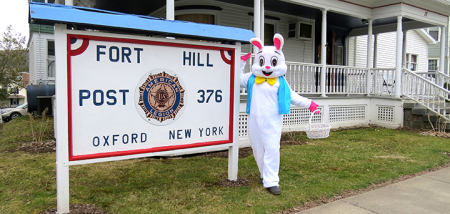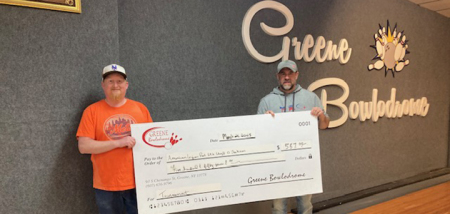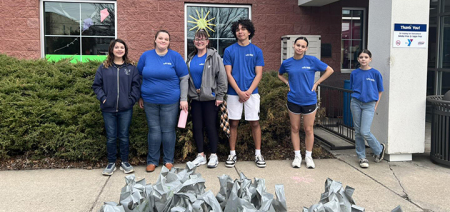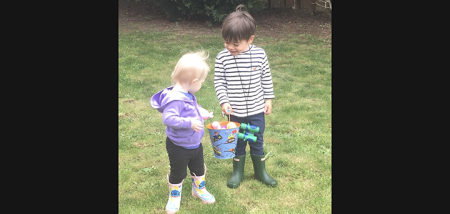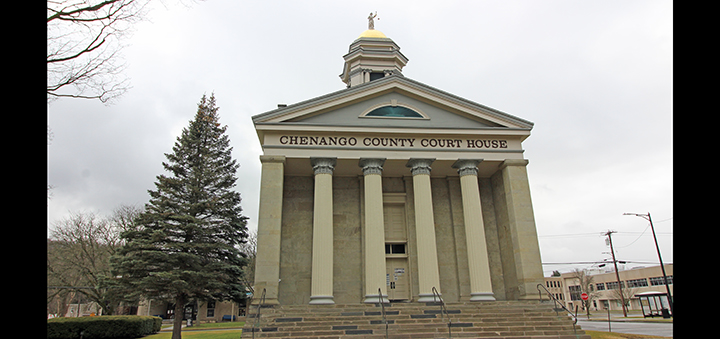Tilting At Windmills : My Beautiful, Beautiful Daughter
Published:
February 17th, 2023
By:
Shelly Reuben
 Author Shelly Reuben
Author Shelly Reuben
Even before he murdered my beautiful, beautiful daughter, I was afraid for Echo’s life.
She was kind and sensitive and illuminated by a mysterious inner light that made her seem fairylike, as if she were Tinker Bell in Peter Pan, and someone watching her from the audience (me) should have been clapping his hands furiously to keep her alive.
During my twenty years in the Marines, I had been a solitary soul. Then, while recovering from combat injuries in a VA Hospital, I met Julie. She was my rehab nurse and would have been the woman of my dreams if I’d had enough sense to dream her up. I thought that I’d seduced her with my charms, but her description of our love affair was much less romantic. She said that on the day I met her, she became my military objective. That I isolated her, overcame her resistance, and then took her as my hostage.
“That’s how you’d describe our marriage?” I complained. “As a hostage situation?”
Julie laughed. When she did, her nose twitched and a dimple creased her right cheek. She said, “You have a thin veneer of civilization, Burt, but bottom line, you’re a caveman.”
We did a lot of laughing over the years. This was good, because Echo’s childhood was bathed in joy, and after Julie was killed in an automobile accident, memories of those delicious days became the crutches we leaned on to survive. I would not let Echo succumb to self-pity. I said, and meant, “You had a perfect mother for fourteen years. I had a perfect wife. Most people don’t get sixty seconds of the kind of happiness we’ve had for half a lifetime.”
Which didn’t mean that we couldn’t cry. You lose someone you love, and cry is what you do.
I was proud of my daughter. She was such a good girl. Strong, smart, and beautiful. Echo is the only person I’ve ever known who could sit down and read Bartlett’s Quotations from cover to cover; or make origami birds while watching old MGM movies on TV; or dance barefoot on the grass like an elfin princess in the moonlight.
She had been taking advanced courses at our local college, and she did not know that he was stalking her. Nor did she know that she had become that pestilent little bastard’s obsession.
He kidnapped, violated, and killed her. And he was arrested within 24 hours of committing the crime. Thirteen months later, he was tried, convicted, and sentenced to death
Then, a fatal crack appeared in the bowl of justice.
I won’t delineate every detail of prosecutorial error, every shred of lost evidence, or every questionable judicial decision. All you have to know is that his conviction was overturned, the D.A. was voted out of office, and the new district attorney chose not to retry the case.
I have friends. Good friends who liked me and who loved Echo. They watched me closely during and after the trial. They studied me with deep concern after Echo’s killer was set free. And when I did not go into a profound depression, drink alcoholically, or threaten vengeance, they asked, “How can you be taking it so calmly, Burt? … How come you aren’t going crazy? … What are you going to do? … You have to do something.”
They never understood. Not one of them. Not ever. Except for Fran. Fran and I never talked about it. And we never will.
Fran was the cop who tracked down the little bastard. She arrested him, read him his rights, turned him over to the prosecutor, and testified at his trial. Then she saw her perfect case thrown out of court and a monster released.
When journalists probed, prodded, and provoked me for a response, I always said the same thing. “For twenty years, I proudly served as an officer in the Marines. I took an oath to support and defend the Constitution of the United States. I am not permitted to take the law into my own hands. No one is. Not even in the event of the death of a loved one.”
I started to attend religious services. I picked St. John’s Episcopal because it holds four services a day. Five on Sunday. I went at least once a day, and always wore the same dark blue USMC baseball cap and navy blue windbreaker. I sat in the farthest pew from the altar – the one closest to the center doors. I got involved in community affairs. I found lost dogs; I washed dishes at a soup kitchen: I joined the local planning board. I even coached a Little League team, and at one game, a burly brute of an irate father swung a fist at my face. I caught his fist in mid-air, forced it down, and said, “There is never an excuse for violence. Never. Let’s set a good example for the kids.”
I set a good example. I turned the other cheek. People admired my self-control. People admired my resolve. They said I was saint-like in my dealings with my fellow man, and that I had transformed my grief into good works. That was what I wanted them to say.
A year went by. Then eighteen months.
I saw Fran from time to time. For coffee. For a movie. We never discussed my daughter. We never discussed the trial. We never discussed the scumbag who had murdered Echo and was then set free. But I kept track of him. Where he was. What he did. Where he worked. A parking lot. A supermarket. A car wash less than two blocks from a school. And I watched.
I was a bereaved father. A broken-hearted, church-going man who dealt with grief in a self-redemptive way. I washed dishes for indigents; I attended monthly community board meetings; I coached Little League. To all intents and purposes, I had a busy schedule.
I did not.
I had ample time to conduct my surveillance: to evaluate my enemy; to anticipate his objective; to devise an effective strategy; to position my assets. To observe. What I had not known was that while I was observing him, Fran was observing me.
We both knew that it was only a matter of time before my daughter’s killer would target another vulnerable girl. And that time had come. She was pretty and petite, with curly blond hair, a sweet face, and a trusting disposition. Her mother drove her to school every morning at eight o’clock, and she walked home alone every afternoon at 4:15. On Wednesdays, she took a shortcut through the woods behind the school’s gymnasium.
I never found out who she was. My job was to confirm his pattern, his intention, and his obsession. Later, when Fran started to tell me about the girl, I stopped her. I did not want to know. I had no need to know. She was not my daughter. My daughter was dead.
Fran had stopped by my house the night before the incident to drop off a book. Or so she said. The next morning, my hat and windbreaker were missing.
I skipped church that day. Church … my alibi … was the only tactical flaw in my plan.
I parked my car two blocks from the school, turned off the engine, and waited. At 1500 hours, I sighted the predator pacing in front of a candy store, alternately checking his watch and clutching at something in his pocket. At 1545 hours, he strode toward the school. At 1601 hours, he positioned himself behind a tree in the wooded area along the path that the girl took to get home.
She entered the woods. I entered the woods. She did not see the flick of his knife, but she heard enough to send her fleeing in terror back to the school. It was not until the following morning, when she saw a television news report about a body, a woods, and a big knife, that she realized what had almost happened. She told her parents. Her parents called the police. Suddenly, horribly, they knew how close their daughter had come to suffering Echo’s fate.
Some newspapers said that the scumbag’s neck, arms, spine, and ribs had been broken. Others reported that he looked like he had been thrown out of an airplane, and all his bones crushed upon impact with the earth. One TV newscaster said he was so damaged, it was as if a giant had picked him up and crushed him in the palm of his hand.
Newspapers exaggerate. Sometimes.
Fran’s partner in the homicide division was a guy named Virgil. They came to see me the day after the body was found. When Fran walked through the door, she met my eye and shrugged, as if to say, “Don’t sweat it, Burt. It’s just something we have to get through.” She told me that the man who was convicted of murdering my daughter had been murdered himself, and that evidence at the scene suggested he was about to abduct another a child at the time that he was killed.
I said nothing.
She told me that he was found with an opened switchblade knife in his hand, the official description of which was “thirteen-inch assisted-opening giant folding-knife with a six-inch stiletto-style blade.”
I said nothing.
Then Fran’s partner started to talk. Virgil described where the body was found (on the path the girl was taking through the woods), what the girl saw (nothing), what she heard (men fighting), and how grateful she was to the unknown person who had saved her life.
I said nothing.
“For the record,” Virgil continued, assuming a you-can-trust-me look on his face, “where were you at 4:00 o’clock yesterday afternoon?”
I said, “Church.”
Virgil smiled.
I didn’t.
They left.
That evening, Fran came over. She was carrying a small shopping bag.
“I spoke to an eyewitness over at St. John’s,” she said, thrusting the shopping bag into my hand. “She swears she saw you there yesterday afternoon. She’s sure it was you, because you were sitting where you always sit, and she recognized the hat.”
I looked inside the shopping bag. I saw my USMC baseball cap and my blue windbreaker.
Fran added, “I thought that at about 4:00 o’clock yesterday afternoon, you might have the need to be in two places at the same time, so I borrowed them.”
I stared at Fran. How had she known?
She is a tall, slim, attractive woman. As tall as I am. She has penetrating green eyes and a mouth that can convey irony without bitterness.
“Would you like a cup of coffee?” I asked.
“I would indeed,” she answered.
We had dinner that night at a local Italian restaurant. It has good food, old-fashioned wine bottles holding candles that drip hot wax, and Pavarotti singing Pagliacci in the background. We spoke very little during dinner. But we smiled a lot. It was a wonderful night.
Eventually – not all at once – I stopped going to church, stopped volunteering at soup kitchens, and stopped going to planning board meetings. But I kept coaching Little League. I enjoyed the kids. And I wanted to reverse a bad example that I had set. Something about turning the other cheek.
Next month, Fran and I are taking a road trip to the Grand Canyon.
She has eyes that dance when she’s happy, and she has a generous heart. She’s also a great cop. She isn’t uncomfortable when I talk about Echo, but we never discuss my daughter’s murder, and we never talk about the scumbag who killed her.
Ulysses Grant said about the art of war, “Find out where your enemy is. Get at him as soon as you can. Strike him as hard as you can, and keep moving on.”
My objective had been achieved, and justice had been served.
I moved on.
Copyright © Shelly Reuben, 2023. Shelly Reuben’s books have been nominated for Edgar, Prometheus, and Falcon awards. For more about her writing, visit www.shellyreuben.com
Author: Shelly Reuben - More From This Author
Comments


